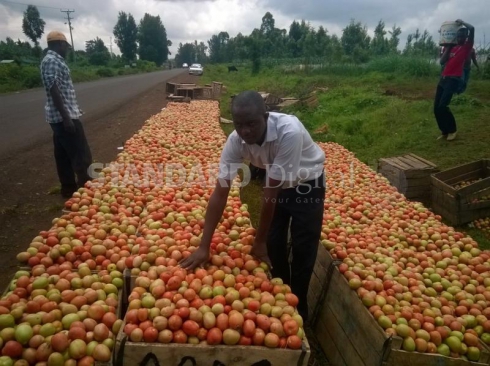×
The Standard e-Paper
Smart Minds Choose Us

KENYA: Kirinyaga County is an agriculturally endowed land with breathtaking rice fields on the Mwea plains and dense, lush tea and coffee plantations on the upper sides, which neighbour Mt Kenya forest.
The picturesque is complemented by patches of blossoming horticultural crops in many parts of the county where farmers who have invested adequate resources in tomato, vegetables and French beans are reaping fortunes.